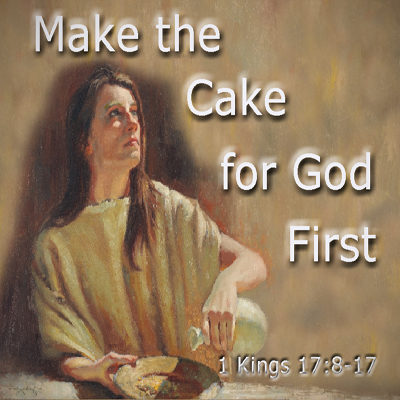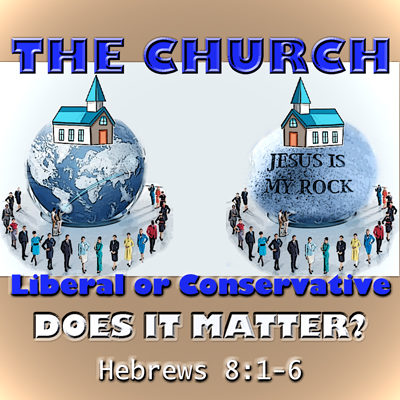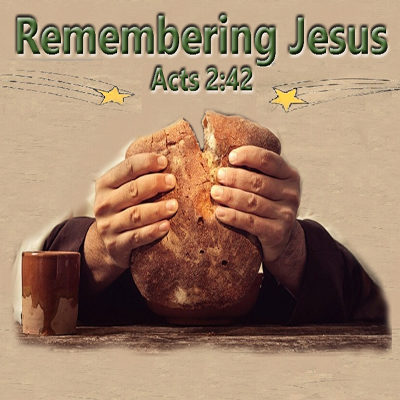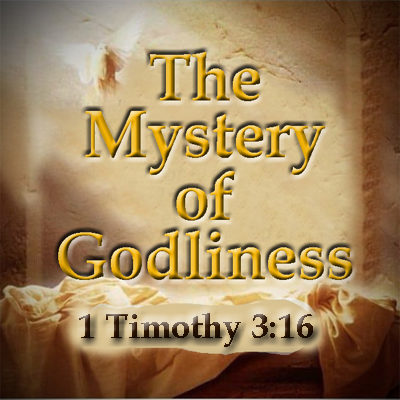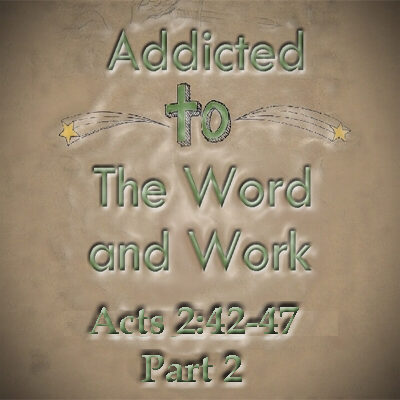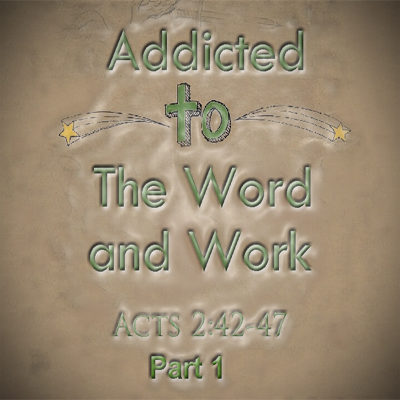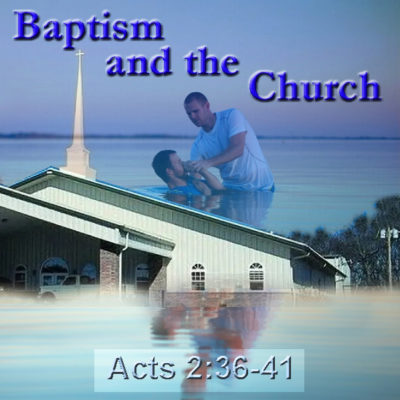Sermons by David Scarpino (Page 21)
In Mark 12:28-34 A scribe asked Jesus, “Which is the first commandment of all?” (v.28). Jesus answered, “The first of all the commandments is: ‘Hear, O Israel, the Lord our God, the Lord is one. 30 And you shall love the Lord your God with all your heart, with all your soul, with all your mind, and with all your strength.’ This is the first commandment” (vs.29-30).
What is of interest and the reason for this lesson is the word “first” which both the scribe and Jesus used (v.28, and v.29) and the word “One” that referenced the Lord (vs.29, 32). As for “first”, the NKJV Bible if you look closely, you’ll see the [superscript j and k] next to the word “first” in both verses. • The footnote attributes the word first to foremost • The actual Greek word is [Πρώτη] which carries the meaning first in rank, influence, honor; chief; principal” [Thayer’s]. • Note how most of the other translations translate “first”: NIV; NLT; ESV; BSB; AB; CSB; HCTB; CEV; GNT; ISV; NET Bible all translated it as; “The most important one”
After hearing the Lord’s answer, “the scribe said to Him, Well said, Teacher. You have spoken the truth, for there is one God, and there is no other but He.to the question” (v.28). The idea that there is only One God, and that the most important “first” command is to love Him with every cell in our body caused me to think of what it really means to make God first, most important in every aspect of our lives, in everything that we say, every decision and everything we do. God just must be our everything.
This all caused me to remember the record of a woman who was commanded to make a cake for the servant of God first, and then for herself and her son. Open your Bibles and turn to 1 Kings chapter 17 and let’s study from verse 8. . .
As you heard read Paul wrote, “3 For every high priest is appointed to offer both gifts and sacrifices. Therefore it is necessary that this One also have something to offer. 4 For if He were on earth, He would not be a priest, since there are priests who offer the gifts according to the law; 5who serve the copy and shadow of the heavenly things, as Moses was divinely instructed when he was about to make the tabernacle. For He said, “See that you make all things according to the pattern shown you on the mountain.” 6 But now He has obtained a more excellent ministry, inasmuch as He is also Mediator of a better covenant, which was established on better promises” (Hebrews 8:3-6).
The one true church belongs to Jesus, He alone is the Head—we are His servants—and whatever we do we do in the name of the Lord. I would imagine that most of us have heard the terms “Liberal and Conservative” concerning the church. What is alarming to me—is that most people in the church don’t understand what the difference is, and not understanding this leads to false assumptions about the church and eventually to false teaching and apostacy.
Join with me as we study from the scriptures, and seek an answer to this important question about the Lord’s church. Does it matter if it is liberal or concervative?
Every Christian must be interested in growing the church. We all know how to grow flowers or corn. You prepare the soil, you plant the seed, you water and feed. In the very exact way the Church of Christ grows. You prepare the soil: Which is a man’s heart (Proverbs 2:1-5) “My son, if you receive my words, And treasure my commands within you, So that you incline your ear to wisdom, And apply your heart to understanding; Yes, if you cry out for discernment, And lift up your voice for understanding, If you seek her as silver, And search for her as for hidden treasures; Then you will understand the fear of the Lord, And find the knowledge of God.” You plant the seed: Which is the Word of God (Luke 8:11). One waters and one feeds, which is our work as Christians, but God makes it grow (1Cor 3:6&7).
THE RESULT: Acts 2:41 “Then those who gladly received his word were baptized; and that day about three thousand souls were added to them.” We will not grow unless we (1) believe we will (2) strive to be strong in proclaiming His word, then we will grow. Acts 2:47 “praising God and having favor with all the people. And the Lord added to the church daily those who were being saved.” We want that church to be strong through edification, Bible study, Worship, Challenging one another, making ourselves ready to answer any question from others (1Peter 3:15).
Paul says, “These things I write to you, though I hope to come to you shortly; but if I am delayed, I write so that you may know how you ought to conduct yourself in the house of God, which is the church of the living God, the pillar and ground of the truth” (1 Timothy 3:14-15).
The church established in 32 A.D., in the city of Jerusalem and built according to the commandments of Jesus Christ who, purchased it with His own blood (Acts 20:28). His church belongs to Him and He alone is the Ruler, King, and Lord. We’ve already searched the scriptures and found that there is only one possible way into His church, which is His body (Col. 18:18, 24), and that is noted in Acts chapter 2 at verses 38, 41, and 47. Every member of the church that Christ built was baptized “into” Christ’s body, (Acts 2:38; Gal. 3:27).
Now those who are members of the body of Christ did continue having fellowship one another as Luke records, “And they continued steadfastly in the apostles’ [n]doctrine and fellowship, in the breaking of bread, and in prayers. ” (Acts 2:42). I emphasized the word fellowship because that is what this lesson is about. In this lesson we will examine Fellowship in the New Testament Church. The fellowship of the Bible is a sharing and a connection with the gospel. The fellowship of the Bible brings us into a partnership and binds Christians together with the Father the Son and the Holy Spirit. Walking in the light, i.e., devoted to, following the apostles’ teaching, living and obeying the gospel together as one body in Christ Jesus our Lord (1 John 1:3-7; Phil. 1:5).
Please listen in with an open Bible and an open heart as we look at fellowship Christians have with one another.
As we studied in our last lesson, as human beings, we tend to forget things. Details become lost as the feelings and impact of past events fade. Remember the Challenger, the events of 911, the U.S. embassy bombing in Beirut, Lebanon, what year did that happen, how many Americans died?
Moses wrote, “6 “And these words which I command you today shall be in your heart. 7 You shall teach them diligently to your children, and shall talk of them when you sit in your house, when you walk by the way, when you lie down, and when you rise up. 8 You shall bind them as a sign on your hand, and they shall be as frontlets between your eyes. 9 You shall write them on the doorposts of your house and on your gates” (Deut. 6:6-9). That was because it is so easy to forget history, what God did for the Jews, what God did for the world. I think that few people alive today don’t know the words, “For God so loved the world that He gave His only begotten Son, that whoever believes in Him should not perish but have everlasting life” (John 3:16). There indeed may be few who don’t remember, but the tragedy is that to a greater extent there are fewer who remember what Jesus did for them during the last three years of His life on the earth. That is why we must also teach about Jesus not just to our own children but to everyone we come in contact with. Peter wrote, “But sanctify the Lord God in your hearts, and always be ready to give a defense to everyone who asks you a reason for the hope that is in you, with meekness and fear;” (1 Peter 3:15), and Paul, “And you, fathers, do not provoke your children to wrath, but bring them up in the training and admonition of the Lord.” (Ephesians 6:4).
We must regularly study our Bibles as Paul instructed Timothy, “Be diligent to present yourself approved to God, a worker who does not need to be ashamed, rightly dividing the word of truth” (2 Tim. 3:15). Remember the virgin birth (Isa. 7:14; Matt. 1:25), remember the miracles, “Water to Wine” John 2:10, “Raising Lazarus from the dead” John 11:1-45, “Walking on Water” Matt. 4:22-33, or “Feeding the 5,000” 14:13-21). And lest we forget the resurrection of our Lord from the dead, Acts 10:40; Matthew 28:5-6 or why Jesus died in the first place, “But God demonstrates His own love toward us, in that while we were still sinners, Christ died for us” (Romans 5:8). We must not forget that Jesus will return to take the saved, that is the church up to heaven to be forevermore with God (John 14:1-6; 1 Cor. 15:4).
Luke recorded, “And they continued steadfastly in the apostles’ [a]doctrine and fellowship, in the breaking of bread, and in prayers” (Acts 2:42). Our lesson today is again from Acts 2:and verse 42: It is titled, “Remembering Jesus” and comes via the words “in the breaking of bread”.
Why is the Lord’s Supper important? Why be devoted to the breaking of bread? When we search the scriptures concerning the taking of the cup, and the bread we will find significant importance to the church, and the weekly practice of the Lord’s Supper. Let’s consider why the Lord’s Supper is important enough that it was Commanded? First because we must . . .Remember Jesus – 1 Cor. 11:24-25; 2 Tim. 3:16; Matt. 1:23; Phil. 2:8; 1 Cor. 15:20.
One such reason is because Most People Have Poor Memories. That’s right—we tend to forget quickly—even things we think we’ll never forget. What is the difference between Memorial Day and Veteran’s Day? Who invoked the Emancipation Proclamation? Who was it that introduced the concept of the “Sinner’s Prayer”, and is that found anywhere in the Bible? Many of these events caused tremendous personal loss, heart stopping, surrealistic pain, on the day they occurred—but a few years later we no longer feel the affect. Why? All because we do have short memories. But – we practice the Lord’s Supper so that we will always remember Jesus. That is why in regard to the practice of the Lord’s Supper, Paul twice quoted Jesus. . .to “do this in remembrance of me” (1 Cor. 11:24, 25).
Paul wrote, “And without controversy great is the mystery of godliness: God was manifested in the flesh, justified in the Spirit, seen by angels, preached among the Gentiles, believed on in the world, received up in glory” (1 Tim. 3:16). We begin our study by defining the phrase “without controversy”. What does it mean? It means there is no, nor can there be any doubt. In this context it means no one should have had any doubt that Jesus was the Christ. Why is this “without controversy”? First, because there where 10’s of 1,000’s of witnesses that saw Jesus alive, i.e., he was (5,000 John 6:1-14), (4,000 Matthew 15:32-39), (Great Multitude Luke 6:17-19), (Witnesses 1 Corinthians 15:3-8). Then there are the Old Testament prophecies Jesus fulfilled concerning the Messiah—it couldn’t be clearer. Jesus said, “17 “Do not think that I came to destroy the Law or the Prophets. I did not come to destroy but to fulfill. 18 For assuredly, I say to you, till heaven and earth pass away, one [a]jot or one [b]tittle will by no means pass from the law till all is fulfilled.” (Matthew 5:17-18).
Jesus Really Did Just That: “44 Then He said to them, “These are the words which I spoke to you while I was still with you, that all things must be fulfilled which were written in the Law of Moses and the Prophets and the Psalms concerning Me.” 45 And He opened their understanding, that they might comprehend the Scriptures. 46 Then He said to them, “Thus it is written, [a]and thus it was necessary for the Christ to suffer and to rise from the dead the third day, 47 and that repentance and remission of sins should be preached in His name to all nations, beginning at Jerusalem. 48 And you are witnesses of these things.” (Luke 24:44-48). It is “without controversy” because, “There are three hundred and thirty-two distinct prophesies in the Old Testament which have been fulfilled in Christ.” [Joseph P. Free, Archaeology and Bible History, 284].
Secondly, also, “without controversy” because even historians like Titus Flavius Josephus who was a first-century Jewish historian, military general, and ambassador for Rome. Josephus was a highly educated aristocrat, born into a wealthy family with strong ties to the Jewish priesthood. Of Jesus he recorded “Now there was about this time Jesus, a wise man, if it be lawful to call him a man; for he was a doer of wonderful works, a teacher of such men as received the truth with pleasure. He drew over to him both many of the Jews and many of the Gentiles. He was [the] Christ. and when Pilate, at the suggestion of the principal men amongst us, had condemned him to the cross, those that loved him at the first did not forsake him; for he appeared to them alive again the third day; as the divine prophets had foretold these and ten thousand other wonderful things concerning him. And the tribe of Christians, so named from him, are not extinct at this day. ”
What is amazing? That so many today still refuse to believe the plain and substantiated truth that Jesus was proven historically, biblically to be the Messiah, the Christ, the Son of the living God. That is without controversy mind-boggling.
In Acts 2 at verse 42 Luke records how the early church lived out their new faith. I like the NASB wording, “They were continually devoting themselves to the apostles’ teaching and to fellowship, to the breaking of bread and to prayer” (Acts 2:24 NASB). The term “continued steadfastly” from the Greek word PROS-KAR-TER-EH-O as meaning “to give constant attention : to be devoted or constant to one” They were addicted or devoted to: 1. The Apostles Teaching / Doctrine, 2. To Fellowship, 3. To the Breading of Bread – the Lord’s Supper and 4. to Prayer
Being devoted to the apostles teaching means their focus comes from only one place—the word of God, as Paul wrote, “Faith comes by hearing and hearing by the word of God” (Rom. 10:17).
That they were continually showing devotion to the Word brings a necessary conclusion: That was devoting time and energy to those things. To them it wasn’t, “well, if we must”, nor was it, “I have other important things to do”, or “I must balance my time and energy between the world and God”. “They were continually devoting themselves. . .
We must be honest with ourselves – left to our own way of thinking we’ll end up utterly lost, and without hope.
What changed those saints from walking in the futility of their mind? • What cured their ignorance, what took away the blindness of their heart? • What raised them from having no hope—to having living with all hope?
The answer is “20 But you have not so learned Christ, 21 if indeed you have heard Him and have been taught by Him, as the truth is in Jesus: 22 that you put off, concerning your former conduct, the old man which grows corrupt according to the deceitful lusts, 23 and be renewed in the spirit of your mind, 24 and that you put on the new man which was created according to God, in true righteousness and holiness” (Eph. 4:20-24).
But you have not so learned – – –
Addicted is a word defined by Webster as, [strongly inclined to do, use, or indulge in something repeatedly] . We can be addicted to bad things: Alcohol, Drugs, Porn, Gambling, and Cigarettes, etc.
We can be addicted to good things: Gardening, Reading, Woodworking, scholastic endeavors, or Modeling, etc. but the best thing anyone can be addicted to is the study and application of God’s word.
On the day of Pentecost that is what happened to at lest 3,000 souls. Scripture tells us that after the gospel concerning Jesus was preached for the first time by Peter (Acts 2:1-36) that those who heard and were convicted asked, “Peter and the rest of the apostles, “Men and brethren, what shall we do?”, (v.37). Peter’s answer, “Repent, and let every one of you be baptized in the name of Jesus Christ for the [k]remission of sins; and you shall receive the gift of the Holy Spirit” (v.38), “Then those who [m]gladly received his word were baptized; and that day about three thousand souls were added to them” (v.41). After which we read, “And they continued steadfastly in the apostles’ [n]doctrine and fellowship, in the breaking of bread, and in prayers” (Acts 2:42).
That term, “steadfastly”, is a compound word [προσκαρτερέω], pronounced “PROS-KAR-TER-EH-O”. PROS means “towards”, and KARTEREHO, means “to give constant attention to a thing : to adhere to one, be his adherent; to be devoted or constant to one”. That is to say these new converts were addicted to the word, “apostle’s doctrine” which includes, but is not limited to (1 Cor. 14:37), fellowship, breaking of bread, and prayers.
These were devoted, addicted to spiritual things. In this lesson we will discuss some of these. Please listen on and if you have questions don’t hesitate to call me by the number listed on the contact tab.
In this lesson we begin with the message titled Baptism and The Church … “37 Now when they heard this, they were cut to the heart, and said to Peter and the rest of the apostles, “Men and brethren, what shall we do?” 38 Then Peter said to them, “Repent, and let every one of you be baptized in the name of Jesus Christ for the [a]remission of sins; and you shall receive the gift of the Holy Spirit” (Acts 2:37-38). I often find it beyond the realm of explanation that at just the mention of the word “baptism” people are sent into a myriad of red flag responses. In Acts 2 verses 37 through 38 which you just read, and as you see in your own bibles, the text is simple, straightforward and easy to understand. Yet, to the many denominations in our world today, baptism is extremely contentious, controversial and even a combative subject. Honestly, I don’t understand why. When you read from Acts 2 and verse 38 it seems so simple, and is in harmony with every other scripture concerning baptism. Yet many, because of teachers that refuse to allow scripture to be right—have confused many by their opposing doctrine and contradictions.
But if you contend, as so many do, about the purpose of baptism—then you also must argue against many other simple verses on the subject—and prove they don’t mean what they clearly say. Many have confused the majority with their teaching hewing for, “themselves—broken cisterns that can hold no water” as Israel did in Jerusalem in the days of Jeremiah when God brought charges against the people for forsaking Him (Jer. 2:13). What I hope to accomplish in this lesson is to simplify. . .What must precede baptism, hopefully—stripping away any misunderstanding for the reason, and purpose of baptism.
